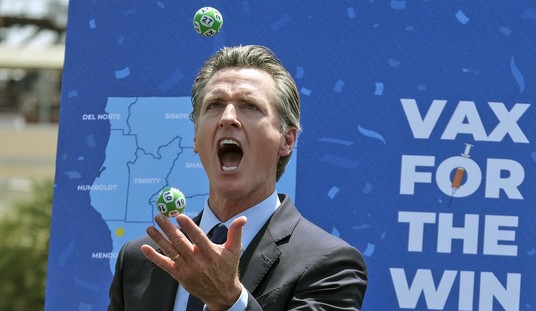We’ve already looked at why insurance, real insurance, wouldn’t charge single men for prenatal care, or women for the chance they’ll need prostate cancer care.
The reason comes down to that mean old risk equation, R=P×H — the risk is the hazard or the cost of an event, times the probability of that event. The risk is what is going to determine your premium, and since the probability is zero, the risk is zero.
But let’s assume, for the sake of argument, that I really wanted insurance for prenatal care for myself — not for my family, but for myself. There are insurance companies that would write the policy, the most famous being Lloyd’s of London. In fact, they’d love to: with no risk of it ever happening, they’d never have to pay a claim.
They still have to pay the rent, however. Someone to answer the phones and open the mail; they need lawyers to write the contracts, accountants to count the money, and janitors to sweep up the ashes of the £100 notes with which they light their Cuban cigars. So even though the risk is zero, the actual premium has to be more, say £50,000, because lawyers and £100 notes don’t grow on trees. It costs you £0 for the risk and £50,000 for administrative costs to get a payout of £0.
That’s when the event cannot happen, so the risk is zero. But what if we look at the other edge case: someone wants to buy insurance against the chance the sun comes up tomorrow. That is, you have a claim if and only if the sun does come up tomorrow. So you go to Lloyd’s and you ask them to write a policy promising to pay £1,000,000 if the sun comes up.
Now, the probability P is 1 and the hazard H is £1,000,000 so the risk is £1,000,000. The premium has to be at least £1,000,000 — but we still need to answer the phones and sweep the ashes, plus we need to stash the cash overnight. It’s about the same amount of work as the first policy, so it costs you £1,050,000 to get your £1,000,000 payout.
In other words, when you make insurance pay for those things that always happen, you necessarily have to pay more.
Both buying insurance for things that can’t happen, and things that always happen, are pretty dumb — and I’m sure you’ll be surprised to find out that when some celebrity insures their legs or their throwing arm or their, um, booty, it’s primarily a publicity stunt.
But now let’s think about health “insurance.” Old-fashioned major medical insured you against getting cancer or having a heart attack or breaking your arm, all things that don’t happen every year. So the probability is “reasonable,” that is, greater than 0 but lots less than 1 and insurance makes sense.
The thing is, our modern health “insurance” must, by law, include things like an annual flu shot and a yearly physical. Those things happen with probability nearly 1.
If a flu shot actually costs $50, the insurance company has to charge more than $50 because they have to cover their costs. Warping the insurance model to pay for ordinary care is, basically, silly.










Join the conversation as a VIP Member